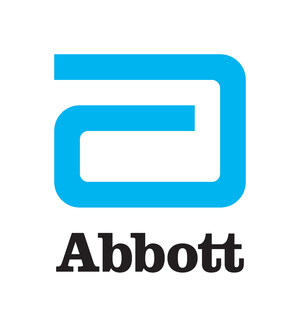Study Suggests Urine NGAL Biomarker May Help Predict Delayed Graft Function
DELKENHEIM, Germany, January 20, 2011 /PRNewswire/ --
A diagnostic test for early detection of acute kidney injury may assist in predicting delayed graft function (DGF) in kidney transplant patients, according to a Finnish study published in Kidney International, the journal of the International Society of Nephrology.
DGF occurs when a transplanted kidney does not function immediately. It is a common complication after kidney transplants, and in some reports, the incidence is as high as 40 percent. DGF is an increasing problem as more kidneys coming from expanded criteria donors are accepted for transplantation.
The aim of the study, led by Maria Hollmen, M.D., Helsinki University Hospital, was to examine how serial urine NGAL (neutrophil gelatinase-associated lipocalin) concentrations change over time following kidney transplants and whether urine concentrations of NGAL can predict the onset of delayed graft function or prolonged delayed graft function.
DGF and prolonged DGF (14 days or longer) can cause acute organ rejection, require patients to undergo dialysis, prolong post-transplant hospital stays, and increase post-operative care costs. According to the study's authors, there is an unmet medical need for an effective test to help predict delayed graft function soon after transplantation, which could help in developing therapeutic interventions to prevent DGF.
"Day one urinary NGAL predicted DGF even when it was not clinically expected early on, and importantly, it predicted prolonged DGF that led to worse graft survival," according to Dr. Hollmen.
One-hundred-and-seventy-six renal transplant patients were evaluated in the study. Urine samples were collected before transplantation and for several days afterward. Seventy patients had DGF and 26 of them were prolonged.
The patients who developed DGF had a significantly slower decrease in urinary NGAL compared to those without DGF. Urine NGAL levels measured a day following transplant predicted prolonged DGF, which had significantly worse one-year graft survival (73 percent) compared with shorter DGF (100 percent).
In the study, the researchers concluded that urine NGAL measurements can predict prolonged DGF and identify patients with severe kidney injury and inferior long-term organ survival. They added that the test also provides a simple method to quantify recovery from kidney injury.
About NGAL
Urine NGAL, a protein found in kidney tubules, can aid in the diagnosis of acute kidney injury (AKI). AKI is a common and potentially devastating illness that quickly reduces the ability of the kidneys to filter waste, a condition which can then progress to kidney failure. Common causes of AKI include sepsis, major surgery, coardiogenic shock, trauma, and medications toxic to the kidney. Abbott has introduced an automated Urine NGAL assay in Europe on ARCHITECT(R), the company's flagship instrument system.
About Abbott Diagnostics
Abbott is a global leader in in vitro diagnostics and offers a broad range of innovative instrument systems and tests for hospitals, reference labs, molecular labs, blood banks, physician offices and clinics. With more than 69,000 customers in more than 100 countries, Abbott's diagnostic products offer customers automation, convenience, bedside testing, cost-effectiveness and flexibility. Abbott has helped transform the practice of medical diagnosis from an art to a science through the company's commitment to improving patient care and lowering costs.
About Abbott
Abbott (NYSE: ABT) is a global, broad-based health care company devoted to the discovery, development, manufacture and marketing of pharmaceuticals and medical products, including nutritionals, devices and diagnostics. The company employs nearly 90,000 people and markets its products in more than 130 countries.
Abbott's news releases and other information are available on the company's Web site at http://www.abbott.com.





Share this article